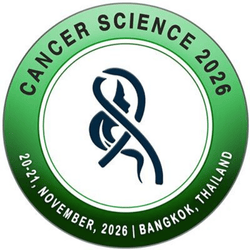Track: HER2 Positive Breast Cancer

HER2-positive breast cancer is a specific subtype characterized by the overexpression of the HER2 protein on the surface of cancer cells. This leads to rapid tumor growth and increases the risk of metastasis. It accounts for about 15-20% of breast cancers. Although HER2-positive cancers are more aggressive, targeted therapies like trastuzumab (Herceptin) have significantly improved survival outcomes by specifically targeting the HER2 protein and inhibiting its activity.
Diagnosis and Biomarkers
The diagnosis of HER2-positive breast cancer is confirmed through immunohistochemistry (IHC) and fluorescence in situ hybridization (FISH), which evaluate the presence and overexpression of HER2 on the tumor cells. Accurate HER2 testing is essential for determining the appropriateness of HER2-targeted therapies.
Targeted Therapies: Targeted treatments focus on inhibiting the HER2 protein, which is critical for cancer cell proliferation. Drugs like trastuzumab (Herceptin), pertuzumab, and trastuzumab emtansine (T-DM1) block HER2 signaling pathways, significantly improving survival rates for HER2-positive patients.
Side Effects and Monitoring: While HER2-targeted therapies are effective, they can cause side effects, particularly cardiac toxicity. Regular monitoring of heart function is essential, as drugs like trastuzumab can lead to heart damage. Other side effects may include fatigue, nausea, and infusion reactions, which require careful management.
Treatment Strategies: Treatment for HER2-positive breast cancer typically combines HER2-targeted drugs, chemotherapy, and sometimes radiation. Neoadjuvant therapy (before surgery) and adjuvant therapy (after surgery) are often used to shrink tumors or eliminate remaining cancer cells, enhancing treatment effectiveness and reducing the risk of recurrence.
Research and Advancements: Ongoing research is focused on improving treatment outcomes, particularly for cases that become resistant to current therapies. New treatments, such as antibody-drug conjugates (ADCs) like T-DM1 and emerging immunotherapies, are being developed to enhance treatment efficacy and overcome resistance. Clinical trials are also investigating the potential of combining these newer therapies with existing treatments to improve survival rates and reduce recurrence.
Scientific Highlights
- Cancer Research
- Types of Cancer
- COVID 19 Impact on Cancer
- Screening & Diagnosis for Cancer
- Cancer Biology and Genetics
- Theraphies for Cancer Treatment
- Cancer and Oncology Nursing
- Molecular Pathways and Signaling
- Breast Cancer and Treatments
- HER2 Positive Breast Cancer
- Breast Cancer Surgery
- Radiology and Oncology
- Oncology Nursing & Patient Care Models
- Palliative & Supportive Oncology Care
- Advances in Breast Cancer Immunotherapy
- Liquid Biopsies in Early Cancer Detection
- Robotic Assisted Breast Cancer Surgery
- Triple Negative Breast Cancer (TNBC)
- Genomics and Cancer Biomarkers
- Artificial Intelligence in Cancer Prognosis
- Precision Onco-Urology


